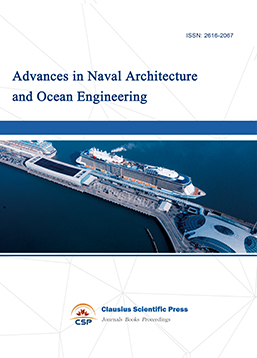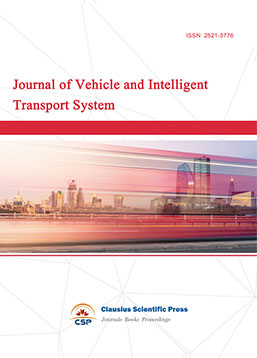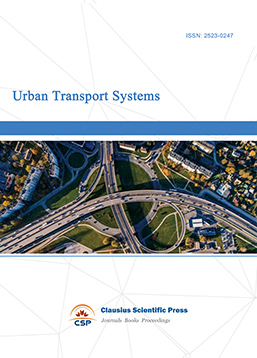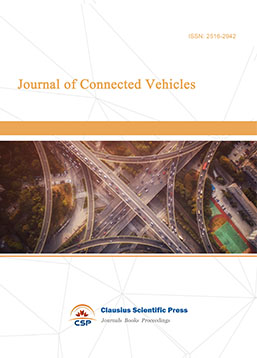Logistics Sorting Center Volume Prediction Based on Time Series Prediction LSTM Model
DOI: 10.23977/ftte.2024.040114 | Downloads: 50 | Views: 2218
Author(s)
Yuhao Song 1, Ziyan Lu 1
Affiliation(s)
1 College of Intelligence and Information Engineering, Shandong University of Traditional Chinese Medicine, Jinan, Shandong, China
Corresponding Author
Yuhao SongABSTRACT
With the rapid development of e-commerce and global trade, logistics sorting centers are faced with increasing cargo volume volatility and complexity, and traditional cargo volume prediction methods are difficult to cope with such changes. In this study, a cargo volume prediction model based on Long Short-Term Memory (LSTM) neural network is proposed by utilizing the logistics data from Jinan City's Caijiao Post. First, the historical data are preprocessed, including missing value filling and outlier processing. Then, the daily cargo volume of each sorting center is predicted based on the LSTM model, and the results show that the model performs well in capturing the long-term dependence in the time series data, and the deviation between the predicted cargo volume data and the actual value is small. Finally, based on the prediction results, suggestions are made to optimize the resource allocation and operation process of the sorting center. The study shows that the LSTM model has important practical significance and application prospects in improving the accuracy of cargo volume prediction and the overall efficiency of the logistics system.
KEYWORDS
Time Series, LSTM, Logistics Sorting, Shipment Estimation, E-commerceCITE THIS PAPER
Yuhao Song, Ziyan Lu, Logistics Sorting Center Volume Prediction Based on Time Series Prediction LSTM Model. Frontiers in Traffic and Transportation Engineering (2024) Vol. 4: 115-122. DOI: http://dx.doi.org/10.23977/ftte.2024.040114.
REFERENCES
[1] Ji, Z. N. Logistics Volume Forecast of Guizhou Province Based on Gray-Markov. Logistics Technology, 2019, 42 (02): 145-149. DOI: 10.13714/j.cnki.1002 -3100.2019.02.034.
[2] Cai, X. H., Zhang, G. B., & Zhang, H. Z. Establishment of a Prediction Model for the Recycling Volume of Waste Household Appliances in Reverse Logistics. Enterprise Reform and Management, 2018, (05): 221-222. DOI: 10.13768/j.cnki.cn11-3793/f.2018.0672.
[3] Lin, Y. F., & Yang, Y. M. Research on Reverse Logistics of Waste Household Appliances in Beijing Based on Scrap Volume Forecast. China Market, 2017, (05): 159-163+173. DOI: 10.13939/j.cnki.zgsc.2017.05.159.
[4] He, S. Research on the Forecast of the Suitable Volume of Logistics Parks Based on the Circle Structure. Changsha University of Science & Technology, 2016.
[5] Liu, L., & Hou, W. Research on the Development of Logistics Industry in Shijiazhuang Based on Logistics Volume Forecast and Industry Linkage Analysis. Logistics Technology, 2015, 34 (24): 128-132.
[6] Xu, X. H., & Li, J. X. Task Volume Forecast of Logistics Liaison Center Based on Wavelet Transform and PSO-BP. Logistics Engineering and Management, 2015, 37 (09): 114-115+109.
[7] Dong, H. J. Jiangsu Province Logistics Volume Forecast Based on Gray GM (1, 1) Model. Market Modernization, 2015, (04): 50-51. DOI: 10.14013/j.cnki. scxdh.2015.04.034.
[8] Wang, Y., & Guo, J. Y. Application of Combined Model in Logistics Volume Forecast. Journal of Xinyang Agricultural College, 2013, 23 (04): 29-31. DOI: 10.16593/j.cnki.41-1433/s.2013.04.013.
[9] Jiang, C. Y. Forecast of Recovery Volume and Improvement of Time and Cost in Reverse Logistics of Electronic Equipment. Tianjin University, 2012.
[10] Shan, B. W. Research on the Planning of Railway Logistics Center Based on Logistics Volume Forecast. Lanzhou Jiaotong University, 2012.
| Downloads: | 910 |
|---|---|
| Visits: | 60205 |

 Download as PDF
Download as PDF


